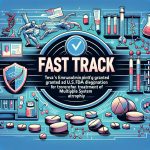CHO Plus has secured U.S. Patent No. 12,404,502 for a yeast cell–fusion platform designed to create hybrid strains with expanded endoplasmic reticulum and higher per‑cell recombinant protein output. The patent covers both the process of fusing yeast and selecting for high‑ER phenotypes, and the composition of matter of the resulting cells. While the immediate use cases span food ingredients and industrial enzymes, the company positions the technology alongside its mammalian platforms, reporting up to tenfold higher antibody titers in engineered CHO and up to twentyfold higher AAV vector yields in engineered HEK‑293 with up to 55% full capsids before purification.
Beyond an IP milestone, this is a bet on productivity as the next competitive frontier. If even a fraction of the claimed yield gains translates in commercial environments, the economics of biologics and gene therapy manufacturing could shift, compressing timelines, easing capacity constraints, and reframing pricing narratives. The strategic question is who moves first: will CDMOs license and embed these platforms to defend capacity and margin, or will biopharma originators adopt them in‑house to de‑risk launch supply and reset cost of goods?
The timing matters. Demand for biologics continues to surge, and vector manufacturing remains a brake on gene therapy development and commercialization. Patients and investigators feel the impact through trial delays and lot‑to‑lot variability; HCPs contend with intermittent supply interruptions; and payers increasingly test manufacturers’ claims that ultra‑high prices reflect manufacturing scarcity. Higher upstream yields and improved full‑to‑empty capsid ratios, if validated at scale, could relieve capacity bottlenecks and reduce downstream processing burden, improving consistency and shortening cycle times. That creates room for more launches to proceed without CDMO bottlenecks, and undermines the scarcity premium that has implicitly propped up parts of the advanced therapies market.
The yeast patent also taps a broader cross‑industry trend. Food and materials companies are scaling recombinant proteins in yeast at industrial volumes, creating a parallel market for strain technology and a potential non‑dilutive revenue stream for platform owners through licensing and royalties. Pharma has seen this movie before: glycoengineered yeast and high‑productivity cell line IP can command premium strategic value when they establish clear differentiation and defensible claims. In today’s financing climate, small platform firms increasingly monetize via partnerships, CDMO integrations, and royalty deals rather than building full-stack manufacturing.
For Commercial teams, meaningful titers in antibodies change launch planning and tender strategy by reducing COGS headwinds and enabling aggressive supply commitments in competitive indications. In gene therapy, improved vector yields could support broader label expansions and accelerate ex‑US rollout by alleviating site and batch constraints. For Medical Affairs, any process change that materially alters host cells, glycosylation, or vector quality will require a robust comparability and RWE plan, including immunogenicity monitoring and stability data to reassure regulators and HCPs that higher productivity does not compromise safety or efficacy. Early alignment with regulators on analytics for full/empty capsid characterization and control strategies will be essential.
The next signal to watch is external validation: third‑party demo runs, CDMO partnerships, or anchor licenses that bring the technology into GMP settings. If CHO Plus converts its yeast IP into a financing or co‑development deal while placing its mammalian platforms with a top‑tier manufacturer, the impact could ripple quickly across pipeline plans and pricing models. The open question for pharma leaders: will productivity breakthroughs merely pad margins, or will they catalyze a re‑price of advanced therapies from scarcity‑based narratives to outcomes‑based value at scale?
Jon Napitupulu is Director of Media Relations at The Clinical Trial Vanguard. Jon, a computer data scientist, focuses on the latest clinical trial industry news and trends.







